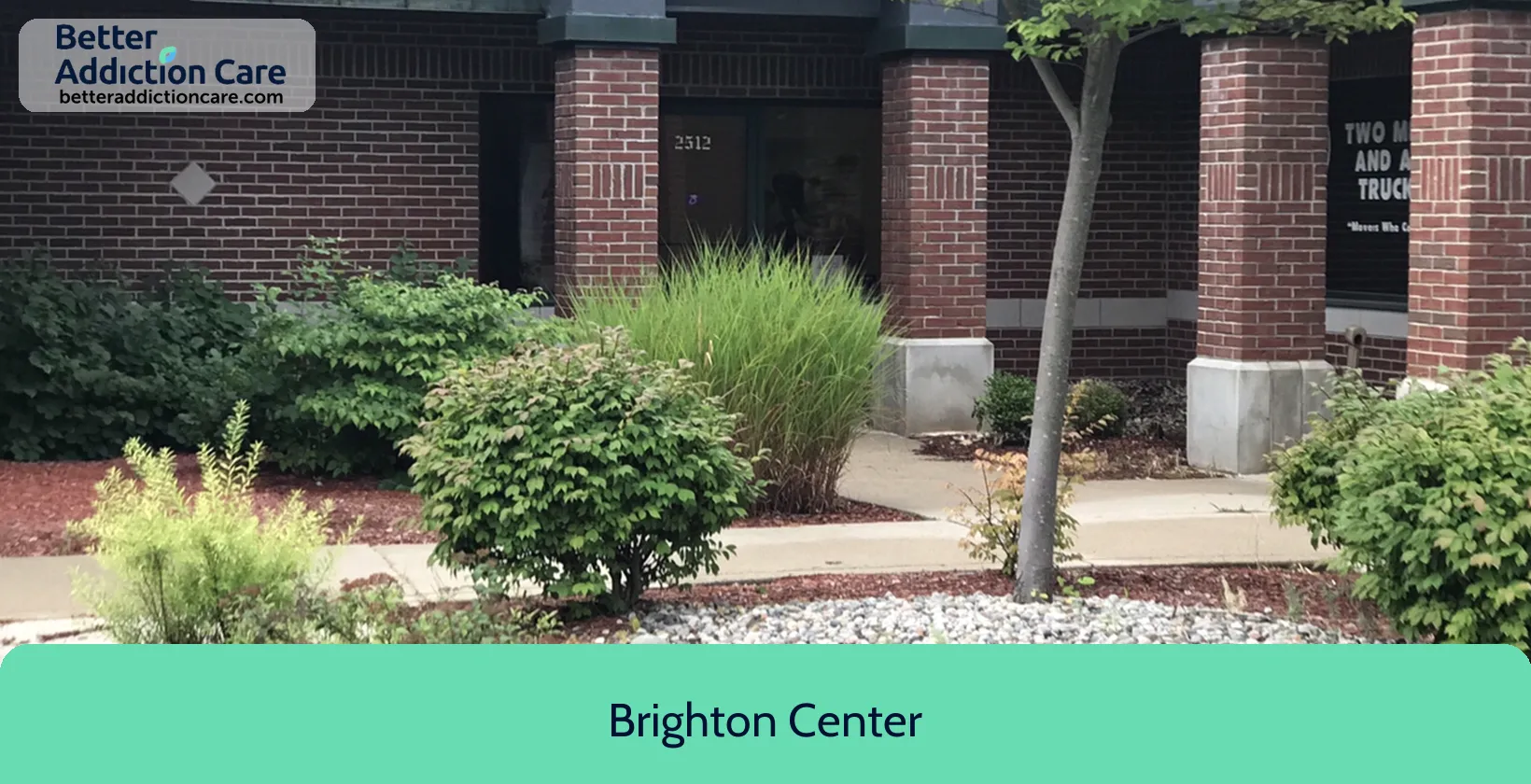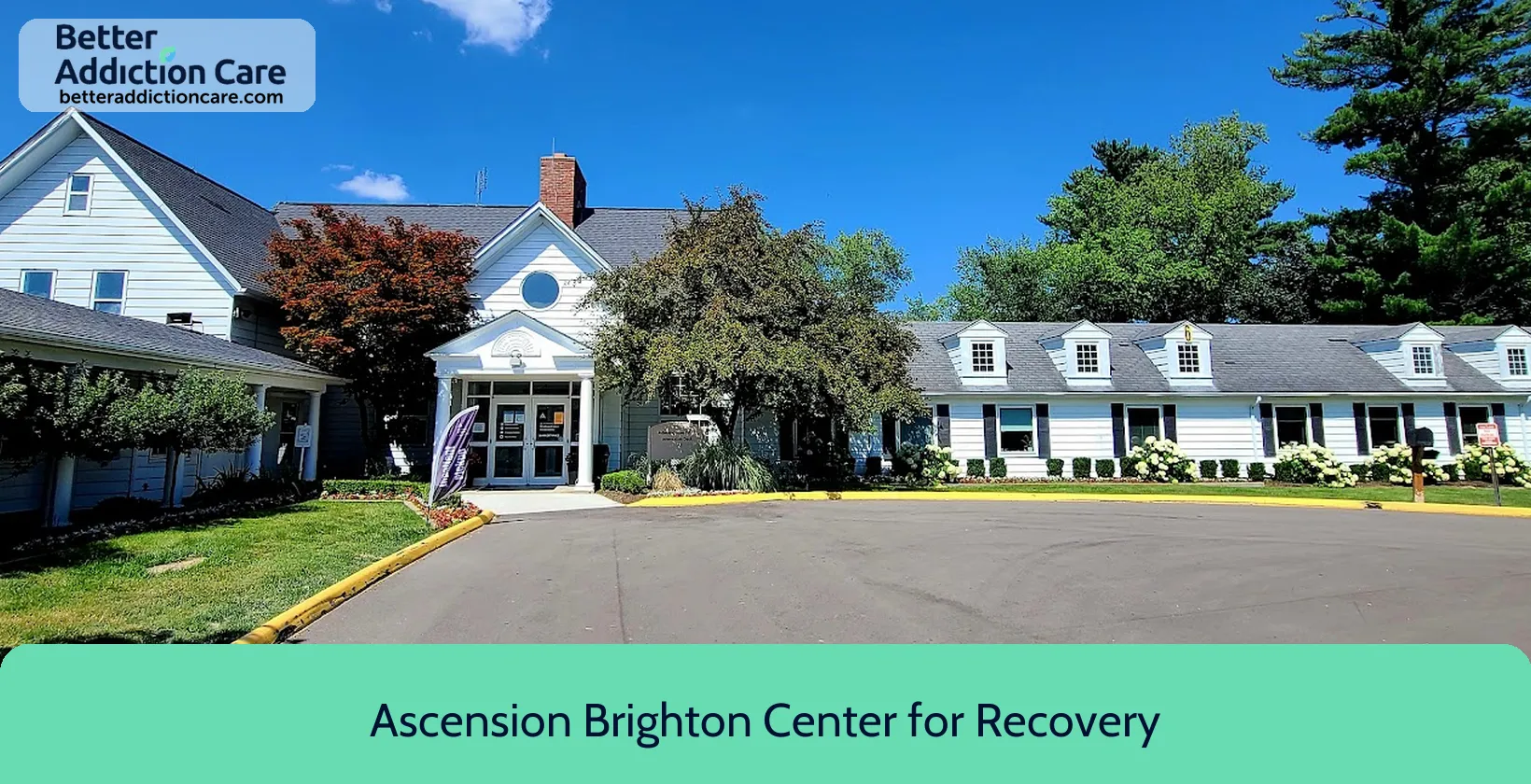Ascension Brighton Center for Recovery
Overview
Ascension, located in Brighton, Michigan, provides comprehensive treatment for addiction to alcohol and drugs, as well as mental health treatment for adults. This facility operates 24 hours a day, 7 days a week, ensuring continuous care and support for its clients.
Ascension offers both inpatient and outpatient care, catering to the varied needs of individuals seeking recovery. The facility includes a halfway housing program, providing a transitional living environment to support long-term recovery, and a dedicated women's recovery program, addressing the unique needs of female clients.
As part of its holistic approach to treatment, Ascension incorporates therapeutic art and yoga into its comprehensive care plans. Additionally, the facility features a meditation trail and a chapel, offering clients peaceful spaces for reflection and spiritual growth.
Ascension is committed to fostering a supportive and nurturing environment, utilizing a variety of therapeutic modalities to promote healing and well-being for those on their recovery journey.
Ascension holds accreditation from The Joint Commission, underscoring its commitment to maintaining the highest standards of patient care and safety.
Ascension Brighton Center for Recovery at a Glance
Payment Options
- Cash or self-payment
- Medicare
- Private health insurance
- Monthly
- Self-pay options
Assessments
- Screening for tobacco use
- Comprehensive mental health assessment
- Comprehensive substance use assessment
- Outreach to persons in the community
- Screening for mental disorders
Age Groups
- Young adults
- Adults
- Seniors
Ancillary Services
- Case management service
- Suicide prevention services
- Mental health services
- Social skills development
Highlights About Ascension Brighton Center for Recovery
7.84/10
With an overall rating of 7.84/10, this facility has following balanced range of services. Alcohol Rehabilitation: 8.00/10, Drug Rehab and Detox: 8.15/10, Insurance and Payments: 6.67/10, Treatment Options: 8.55/10.-
Treatment Options 8.55
-
Drug Rehab and Detox 8.15
-
Alcohol Rehabilitation 8.00
-
Insurance and Payments 6.67
Accreditations
The Joint Commission:

The Joint Commission accreditation signifies that a facility has met rigorous standards of excellence in patient care, treatment, and safety. It assures individuals and healthcare professionals that the accredited facility provides high-quality, evidence-based care for addiction and mental health issues, fostering trust and confidence in their services.
Effective date: 05/28/2016
Registration: 3360
SAMHSA certification for opioid treatment program (OTP):
SAMHSA's Opioid Treatment Programs (OTP) accreditation is a prestigious recognition that signifies a program's compliance with stringent standards and guidelines established by the Substance Abuse and Mental Health Services Administration (SAMHSA). This accreditation demonstrates an OTP's commitment to providing high-quality, evidence-based care for individuals struggling with opioid use disorder (OUD). It serves as a trusted symbol of accountability and excellence, assuring patients, families, and communities that the OTP offers safe, effective, and comprehensive treatment options for OUD.
State department of health:

Government agencies issue State Licenses, which grant rehabilitation organizations permission to conduct their operations lawfully within specific geographic regions. Licenses needed to operate are typically determined by the type of rehabilitation program offered by the facility and its physical location.
Registration: SA0470001
Treatment At Ascension Brighton Center for Recovery
Treatment Conditions
- 24-Hour Clinical Care
- Alcoholism
- Mental health treatment
- Substance use treatment
- Co-occurring Disorders
Care Levels
- Outpatient
- Short-term residential
- Outpatient methadone/buprenorphine or naltrexone treatment
- Intensive outpatient treatment
- Regular outpatient treatment
Treatment Modalities
- Cognitive behavioral therapy
- Telemedicine/telehealth therapy
- Substance use disorder counseling
- Trauma-related counseling
- Smoking/vaping/tobacco cessation counseling
Ancillary Services
Languages
- Sign language services for the deaf and hard of hearing
Additional Services
- Pharmacotherapies administered during treatment
- Mentoring/peer support
- Breathalyzer or blood alcohol testing
Special Programs
- Clients who have experienced trauma
Get Help Now
Common Questions About Ascension Brighton Center for Recovery
Contact Information
Other Facilities in Brighton

7.16

7.68
DISCLAIMER: The facility name, logo and brand are the property and registered trademarks of Brighton Center, and are being used for identification and informational purposes only. Use of these names, logos and brands shall not imply endorsement. BetterAddictionCare.com is not affiliated with or sponsored by Brighton Center.


